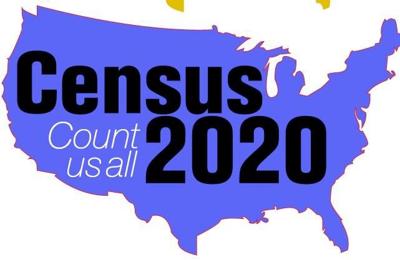HARLINGEN — The city is gearing up for what might be the most challenging Census.
Next year, the federal government will require residents to go online to complete its new electronic Census form.
At the same time, a new question asking residents whether they are United States citizens might stop some from responding.
Generally, a census is a count of the city’s population.
And for every resident who is not counted, the city could lose $1,578.
That’s why the city’s new Complete Count Committee aims to reach parents with children in public schools, public housing residents and even the homeless.
“We want to reach out to everyone,” Assistant City Manager Gabriel Gonzalez said yesterday. “We want to get as many people counted as possible.”
Last week, city commissioners appointed Hilda Benavides, executive director of the Harlingen Public Housing Authority, to contact public housing tenants and Bill Reagan, executive director of Loaves and Fishes, to try to reach out to the homeless.
Commissioners also appointed Dominic Consiglio, marketing manager for Valley International Airport, to help develop a marketing campaign aimed at convincing residents to complete the Census forms.
As part of the campaign, the Harlingen school district appointed Assistant Superintendent Julio Cavazos to send the message into students’ homes.
The committee will include City Commissioner Victor Leal, its chairman, and Commissioner Michael Mezmar.
“This is a super-important issue for us,” Mayor Chris Boswell said after the appointments.
Past undercounts
For months, Cameron County Clerk Sylvia Garza Perez has met with area leaders to work toward a complete Census count.
In 2010, the Census undercounted the city’s residents, Gonzalez said.
A year later, the city’s signs placed its population at 74,950.
However, the 2010 Census placed that number at 64,849.
Then in 2016, the Census put the city’s population at 65,539.
However, the city estimates its population is about 75,000, Gonzalez said.
“There are quite a few areas in the Harlingen area that didn’t respond,” Garza Perez said, pointing to neighborhoods along Washington, Grimes, Bob Youker and Circulo Paradise.
Garza Perez said she did not know the reason behind the lack of response.
During a previous meeting, Gonzalez told commissioners the Census Bureau did not include homes in the Sunset, Vista Verde and New Hampshire-John Rose subdivisions in 2000.
That Census’ count of 30,565 residential city addresses missed 1,440 addresses.
So the city requested the Bureau add those 1,440 addresses to its total number of city residences.
New challenges
This time, the city faces new challenges as it tries to convince residents to be counted.
“That’s a real concern,” Gonzalez said of the possibility of an undercount.
For the city, an accurate Census count boosts federal dollars.
Based on a formula, the city receives $1,578 for every resident the Census counts.
In previous years, the Census Bureau mailed out forms to residents’ homes.
Next year, the Bureau will mail out notices including residents’ Census identification numbers, Gonzalez said.
Gonzalez said the Bureau will ask residents to use those numbers to fill out their online forms.
“You can use your cell phone to fill it out,” he said.
Last year, commissioners set aside $25,000 to help fund the marketing campaign.
“Never in the history of the census have we filled out an electronic format,” Gonzalez said. “There’s going to be some people who don’t know how to access the website to fill it out.”
Some of that money might help set up computer banks to give residents access to the Internet.
“They can go to a facility and get help filling it out,” Gonzalez said.
Officials are also considering setting up mobile computer sites in some neighborhoods.
Meanwhile, some areas lack full Internet access, Garza Perez said.
“There are rural areas that may not have adequate Internet access,” she said. “There are areas where internet access if very slow.”
Garza Perez also said some low-income residents might not have smart phones with which to access the Census website.
“Does everyone have the resources to afford internet access?” she asked.
Meanwhile, states have filed lawsuits aimed at stopping the Census from including the question of citizenship.
In the Rio Grande Valley, home to tens of thousands of undocumented immigrants, the question could stop many from completing the Census form.
“That might keep people away who would otherwise fill out the form,” Gonzalez said.





